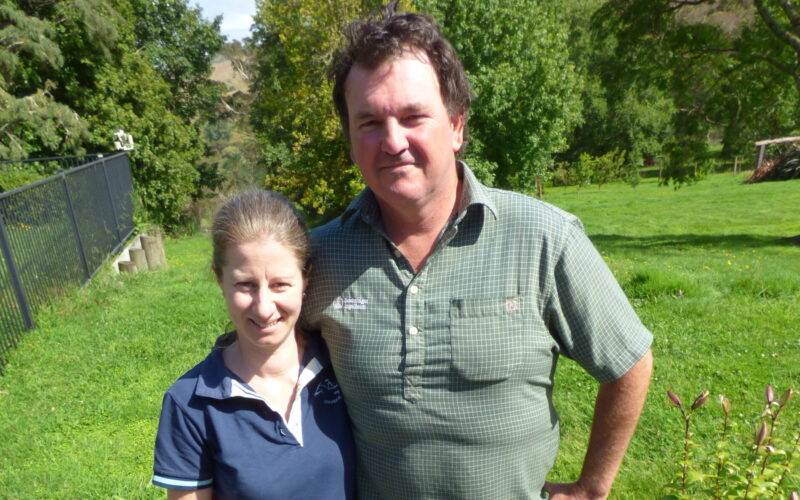Charlie Reynolds is not someone who has taken the role of selling the family farm to forestry operators lightly. The east coast hill country farmer near Ormond has clearly spent time tossing over what to do with the 440ha family property that was part of a block originally bought by his grandfather in the late 60s.
“It was sad for family, but we felt we were staring at the inevitable. Our son is not interested in farming, he is only young, and really all we have done is pull the trigger on this 20 years early.”
The opportunity to sell out and quit significant debt to family and the bank, and to enjoy the rest of their working years doing something else has left him and wife Megan with a a new chapter in their lives to enjoy.
“We were not that happy about selling for forestry, but the $2 million between the forestry offer and the highest farm offer, it was simply too great to ignore, it is a life-changing amount.”
The acting Federated Farmers president for Gisborne-Wairoa acknowledges it may seem like he’s selling out but said everyone he has spoken to have said ‘good on you’ for making the decision.
“Everyone has said you can’t take a $2 million cut just to keep it in farmland. If it had been the case of say a hundred thousand dollars difference- we would obviously considered it.”
The couple had considered every option possible prior to taking the overseas forestry company’s offer.
“We had looked at setting 100ha of the place off for forestry planting and carbon earning, but the bank would not fund that. Being close to town, we even looked to see if part could be leased out to horticulture.”
Reynolds exudes a renewed confidence, almost like a man who has finally been able to come up for air after years of physical, mental, and emotional struggle in the tough country behind Gisborne.
“Last winter was particularly tough. This country is difficult to farm in the wet, with heavy clay. Even a family member who farms up in Motu country said he thought this was tough. We ended up winching ourselves and our bikes around the farm last winter, it was so sticky and wet for so long.”
Reynolds was also experiencing the dilemma many smaller, harder hill country farms face.
Their expenses per stock unit are no lower than larger operators and if anything higher for some inputs, while the scale means they are not able to employ staff to give owners and their families a reasonable break.
“You did spend plenty of time on the place when the only thing to talk to was the dog.”
Reynolds acknowledges his situation mirrors that many smaller farmers in the tough Te Tairawhiti region face, but he is by no means writing off the future of all hill country operations.
“I think the larger farms are still in a good position. If it is a good farm that matches to a neighbouring property, then neighbours will think it is worth having a crack at it. Or it might be a bigger farming operation in another part of the district that know it’s a small block, but it will work in well with the entire operation.
“I don’t see forestry coming and nabbing everything. But at same time it may end up being the only option for those smaller guys because like us, the farm is just too tough really to be a pastoral farm, so farmers were not interested in it.”
An ongoing stream of legislative and regulation changes have added fuel to the family’s decision to sell out sooner than later.
“With impending national environmental standards coming out, the general cost of operating this type of property was not sustainable.”
This included having to fence about 12km of stream length on a highly floodable area where they had already lost 6km of fence in an earlier flood.
The gully laden property includes plentiful native bush, something that he said did not seem to count for much under government emissions policy.
“We were at the top end of gas emissions charges at about $40,000, which we could not recoup.”
The couple are looking forward to remaining in the family homestead, with 20ha for Megan to pursue her passion for horses, and to run some cattle.
Meantime Charlie appreciates the irony not only of being a Fed Farmers senior member who is leaving his pastoral roots, but also picking up a job with a forestry company. The new position enables him to capitalise on his skills in driving heavy machinery, and being well paid for having a valued heavy truck licence.
“I enjoy the work, it’s more relaxed.
“I am not sure everyone entirely appreciates the stress of being a sole hill country farmer, you always face time pressure and jobs needing to be done, it’s a pretty lonely role.”






